Johnny Cash's 'JC Unit One' tour bus arrives in Nashville as a must-see Ryman tourist stop
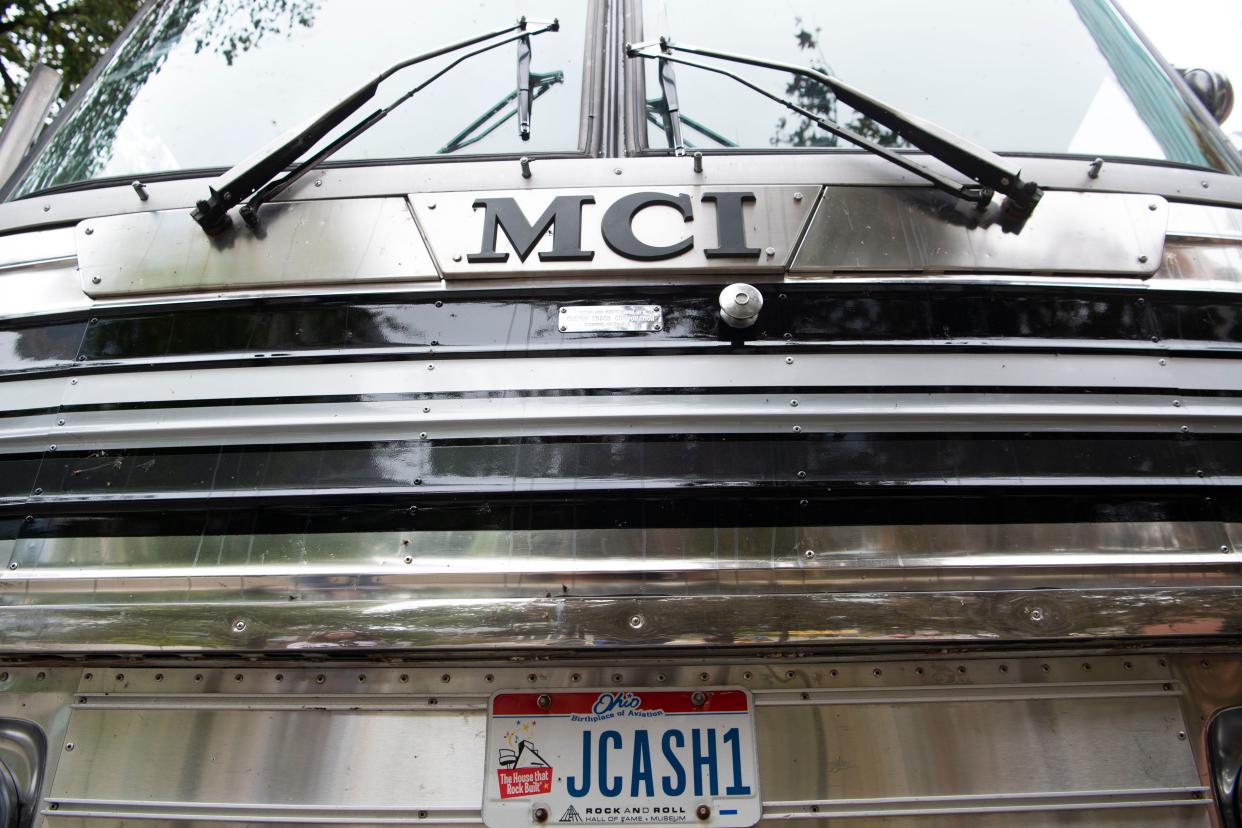
As a part of the Ryman Auditorium's ongoing partnership with the Rock and Roll Hall of Fame, "JC Unit One," the tour bus Johnny Cash used from 1979 until the end of his life, will be parked in front of The Ryman Auditorium and available for touring through spring 2024.
Access to the bus will be included in the Ryman daytime tour admission starting Oct. 14.
The reconditioned and refurbished Greyhound bus has traveled nearly 400,000 miles in its life span, including time spent on the 1991 Highwaymen tour, where the vehicle also carried Willie Nelson, Waylon Jennings and Kris Kristofferson.
In 1979, Cash purchased the 40-foot Greyhound bus shell from MCI, a longtime leading North American coach manufacturer. He spent the modern equivalent of nearly $2 million to send it to Columbus, Ohio's Custom Coach Corporation, a pioneer in converting buses into luxury home vehicles, for transformation into his home on wheels.
"I have a home that takes me anywhere I need to go, that cradles me and comforts me, that lets me nod off in the mountains and wake up in the plains: my bus, of course. We call it Unit One. I love my bus. It really is my home, too. When I make it off another plane and through another airport, the sight of that big black MCI waiting by the curb sends waves of relief through me. [It's] my cocoon," stated Cash in his 1997 autobiography.
Cash, his family and his bus, in 1979
Those touring the vehicle will note how well it reflects where Cash was in his life in 1979 and beyond — they will also note that Cash, even when appearing calm, still maintained an "outlaw" streak.
The era found him a decade removed from his most significant bout with drug addiction, but still playing enough where he began using amphetamines again in 1977 and became a patient at the Betty Ford Clinic by 1983.
This also dovetailed into an era that saw him more openly embrace religion.
Johnny Cash: Farewell to the Man in Black, 20 years later
Nov. 1978 saw him touring Israel and performing at Billy Graham Crusades as a newly-ordained minister. Moreover, he had released gospel albums, including the double release "A Believer Sings the Truth" and "Johnny Cash Sings with the BC Goodpasture Christian School."
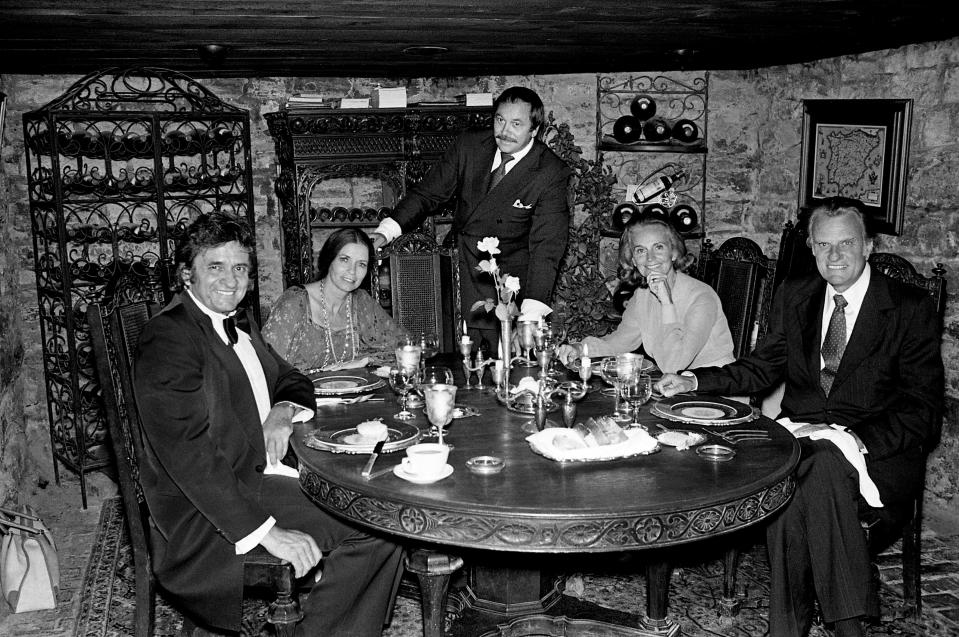
The latter was recorded as a fundraiser album for the private Christian school Johnny's son, John Carter, was enrolled at a 15-minute drive north of downtown Nashville. Cash re-recorded several of his older gospel songs with Goodpasture students providing backing instruments and vocals.
Johnny, his wife June, and their son, John Carter, all had separate compartments on the vehicle and an extra compartment for the driver.
Cedar, hickory and mahogany wood outfit much of the coach's compartments. Notably, the mahogany used for the door into Johnny's personal area was secretly felled and milled on the Cash family's Jamaican Cinnamon Hill property, then secretly smuggled to America (the Jamaican government forbids the export of exotic hardwood) by being made into crates that were then re-fashioned into doors.
Head into the kitchen, and there, a rotisserie grill installed into the coach is there to ensure that the Cash family always had access to their beloved barbecue meats.
June Carter's compartment door features yet another contraband piece of merchandise — because Johnny called her "Queenie," he installed a plaque reading "Royal Box" on her door, taken directly from the royal box of a theater in England where he had attended a viewing of "Gone With The Wind."
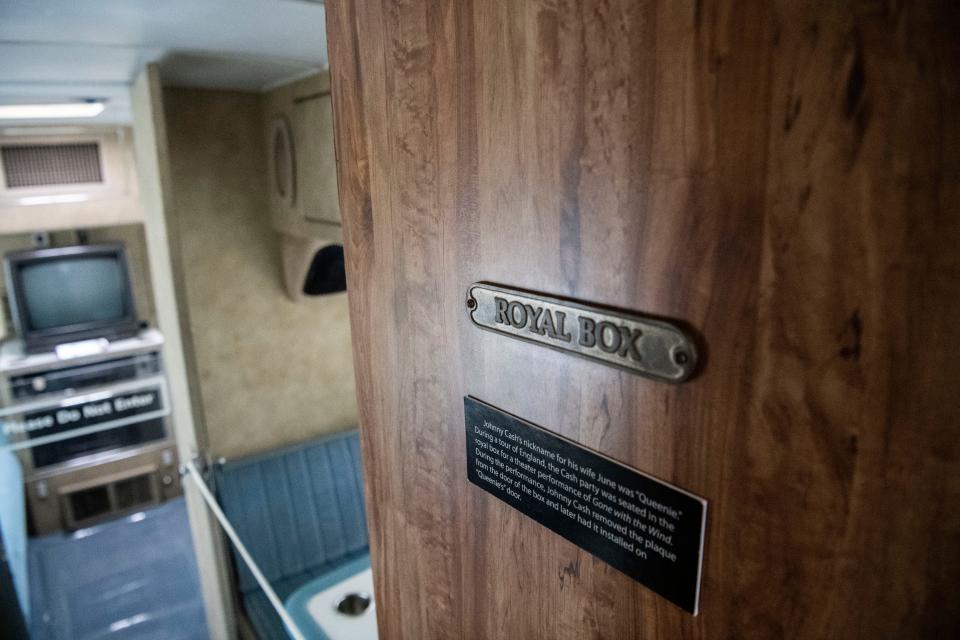
Moreover, June and John Carter's cabins are outfitted with plush, blue velvet-lined seating and white lace curtains meant to mimic the parlor of the Carter Family home in which she was raised.
The Highwaymen era and beyond
By 1991, Cash was experiencing a career revival after being released from his contract by Columbia Records in 1986.
As part of what the Orlando Sentinel once called "a living Mount Rushmore of country music," Cash, alongside Willie Nelson, Waylon Jennings and Kris Kristofferson, their quartet the Highwaymen — named after a Jimmy Webb song that was the title of a hit single and 1985-released million-selling joint album) retained musical authenticity to country's traditions.
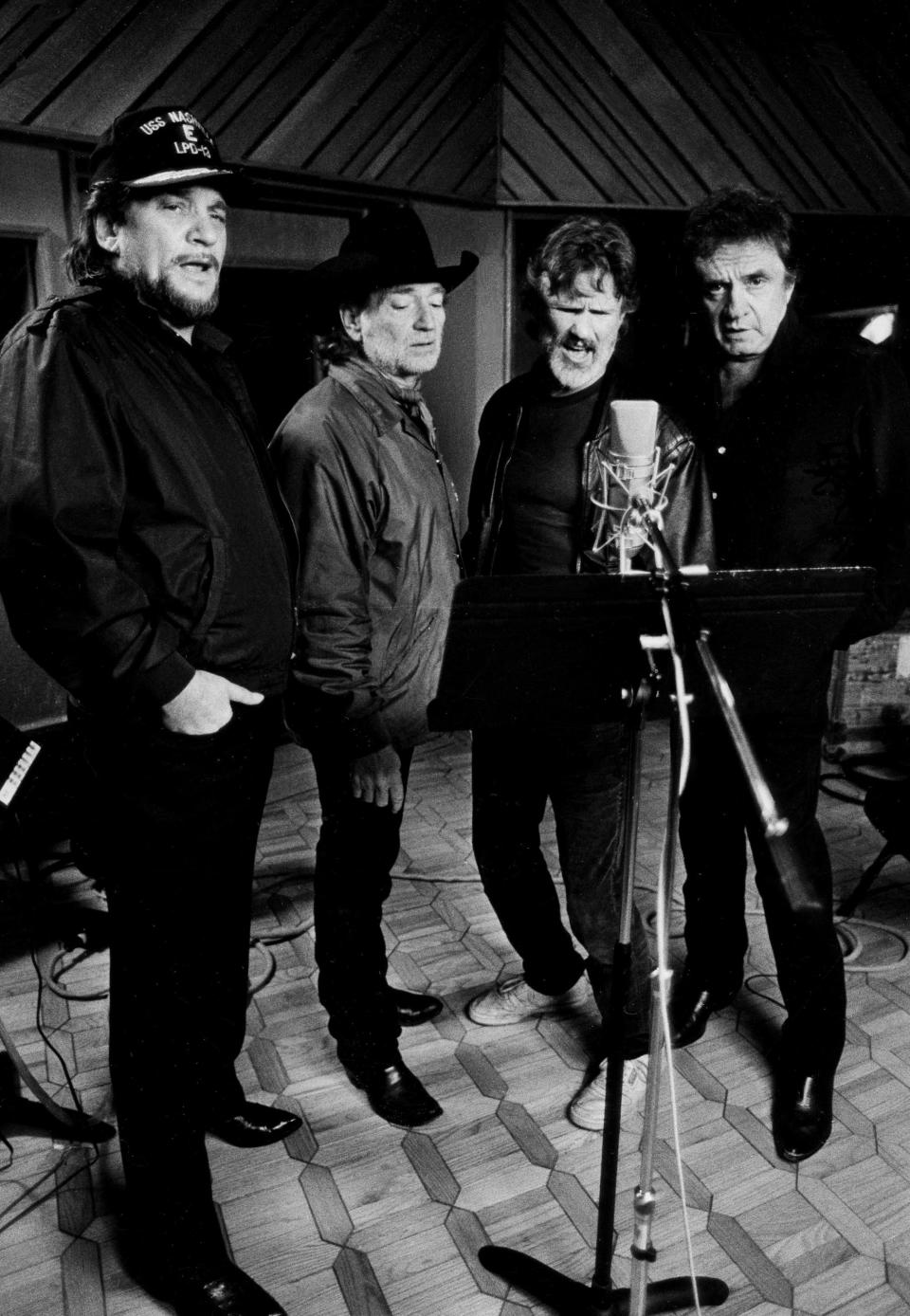
"... it is the Urban Cowboy syndrome, Nashville (record executives) still trying to sell country records to the people who are buying cowboy boots in New York City. I worry about it a lot, but don't like to think of this tour as a last roundup. I'd like to believe it's an inspiration, a new beginning," stated Cash about the 1991 tour that used "JC Unit One" to carry the country icons from date to date.
"Cash, whether with his own family or on the road with The Highwaymen, had reached a period of his life where he desperately sought to be steeped in love, family and togetherness and the bus represents that," stated Shelby Morrison, Director of Artist Relations at the Rock and Roll Hall of Fame, who journeyed 12 hours from Cleveland to Nashville with the bus.
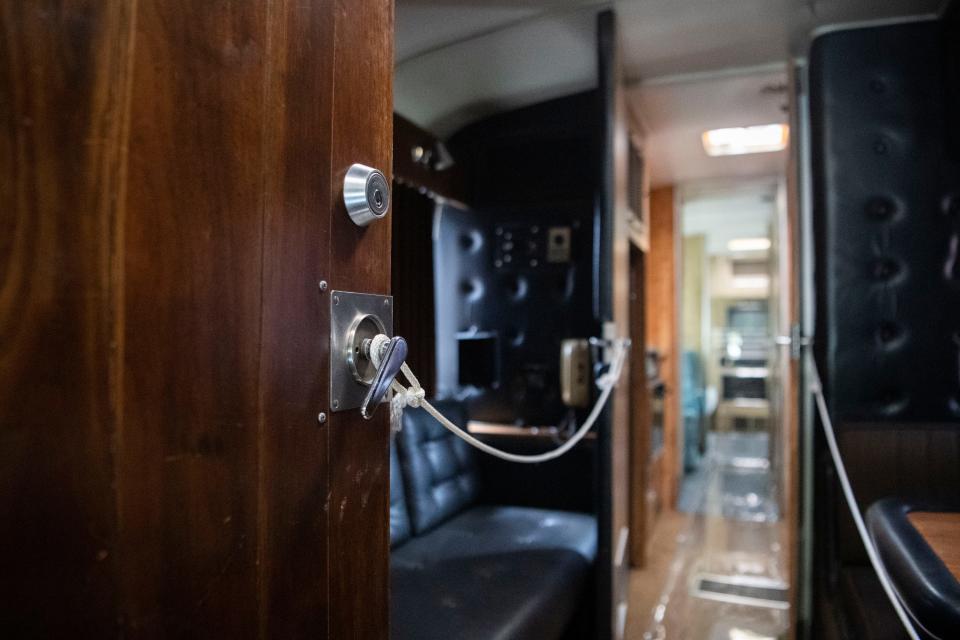
After his wife's May 2003 passing, Cash sold the bus to a religious ministry.
Between 2003 and its eventual 2007 ownership by the Rock and Roll Hall of Fame, the bus was initially sold to Cash's childhood friend, L. Eldon Wright, gospel singer and co-founder of the American Heritage Music Foundation. Soon after that, it was purchased by a car dealer and motorcoach clearinghouse, who eventually sold it via eBay to North Carolina-based artifact collector and horse show producer Dave Wright. Wright had the bus restored to its original working condition by Grove City, Ohio's Creative Mobile Interiors.
First look: 5 things you need to see at the Rock Hall's new Ryman exhibit
In 2005, Wright allowed the Tennessee Three, Cash's longtime backing band, to use the bus for touring, including supporting the 2005 Cash biopic "Walk the Line."
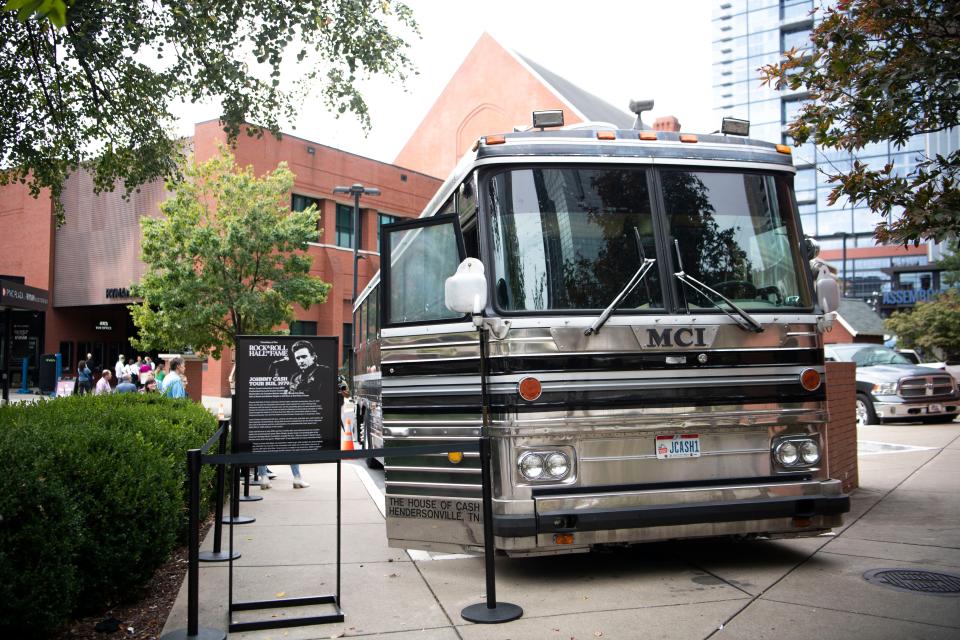
By 2007, he then donated the bus to the Hall of Fame.
Morrison summarizes the travel coach's importance to the Rock Hall, Ryman, country music and pop culture this way:
"This is a unique, beautiful vehicle filled with custom surprises that celebrates the commercial success of Johnny Cash's career, but it also defines the dichotomy created by requiring a 'cocoon' to seek refuge, at times, from the [stress] of that acclaim. He was as much in service to his fans as to his family and friends."
This article originally appeared on Nashville Tennessean: Johnny Cash tour bus arrives in Nashville for must-see Ryman stop
